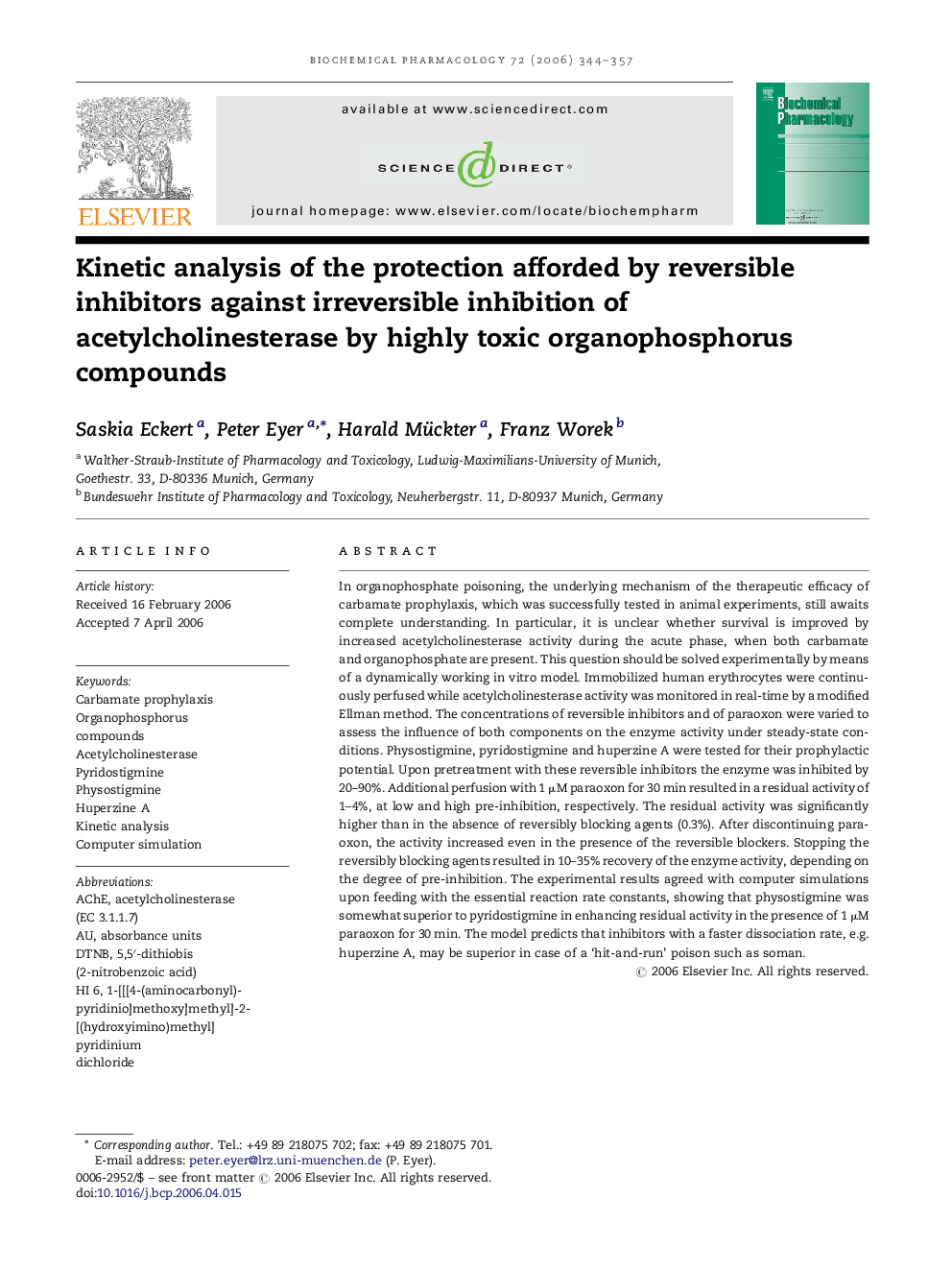| Article ID | Journal | Published Year | Pages | File Type |
|---|---|---|---|---|
| 2515491 | Biochemical Pharmacology | 2006 | 14 Pages |
In organophosphate poisoning, the underlying mechanism of the therapeutic efficacy of carbamate prophylaxis, which was successfully tested in animal experiments, still awaits complete understanding. In particular, it is unclear whether survival is improved by increased acetylcholinesterase activity during the acute phase, when both carbamate and organophosphate are present. This question should be solved experimentally by means of a dynamically working in vitro model. Immobilized human erythrocytes were continuously perfused while acetylcholinesterase activity was monitored in real-time by a modified Ellman method. The concentrations of reversible inhibitors and of paraoxon were varied to assess the influence of both components on the enzyme activity under steady-state conditions. Physostigmine, pyridostigmine and huperzine A were tested for their prophylactic potential. Upon pretreatment with these reversible inhibitors the enzyme was inhibited by 20–90%. Additional perfusion with 1 μM paraoxon for 30 min resulted in a residual activity of 1–4%, at low and high pre-inhibition, respectively. The residual activity was significantly higher than in the absence of reversibly blocking agents (0.3%). After discontinuing paraoxon, the activity increased even in the presence of the reversible blockers. Stopping the reversibly blocking agents resulted in 10–35% recovery of the enzyme activity, depending on the degree of pre-inhibition. The experimental results agreed with computer simulations upon feeding with the essential reaction rate constants, showing that physostigmine was somewhat superior to pyridostigmine in enhancing residual activity in the presence of 1 μM paraoxon for 30 min. The model predicts that inhibitors with a faster dissociation rate, e.g. huperzine A, may be superior in case of a ‘hit-and-run’ poison such as soman.
